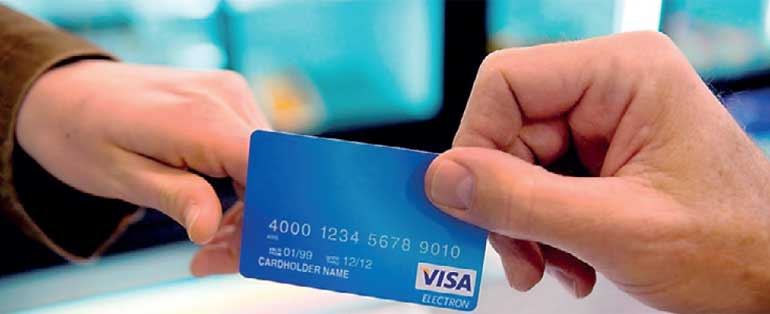Thursday Feb 19, 2026
Thursday Feb 19, 2026
Wednesday, 29 March 2017 01:28 - - {{hitsCtrl.values.hits}}

Visa Inc., the global leader in payments technology, yesterday announced growth of 22% in payment volume in the Sri Lanka market in 2016. This growth comes off the back of a number of initiatives and investments made by the company in developing the acceptance infrastructure and driving awareness around the benefits of electronic payments in the country.
Visa has been in Sri Lanka for the last 29 years, over which time there has been considerable growth in the uptake of electronic payments. Last year, payment volume on Visa credit cards increased 23 %, while Visa debit cards were up 21%.
There has also been a significant increase in the overall number of Visa transactions (22%), with a 61% increase in e-commerce transactions and a 39% increase in international transactions.
Sri Lanka is a fast-developing economy and with the evolution of digital commerce, there is significant opportunity for the growth of electronic payments, says Anthony Watson, Visa’s Country Manager for Sri Lanka and Maldives.
“At Visa, we aim to accelerate the growth of electronic payments by developing the acceptance network for merchants, supporting the government on effective policy making decisions, and supporting our Financial Institution partners with access to fast, secure and convenient Visa payment products and services. We will continue to leverage our global payments network to bring the latest payment solutions to the Sri Lankan market, which is seeing a surge in the popularity of e-commerce transactions and will gradually move towards mobile payments,” he added.
The payments industry in Sri Lanka is undergoing rapid change and the electronification of payments is marking the future of digital transactions. However, personal consumption expenditure on electronic payments remains around 4.2 %, which indicates there is still considerable room for growth.
Visa is enabling the transition from cash to electronic payments in Sri Lanka through three key pillars.
Firstly, providing a focus on security and convenience, creating a safe and secure environment for consumers to make electronic payments and businesses to receive payments.
Secondly, continuing to innovate and introducing new forms of payment technology to accelerate the growth and adoption of digital commerce.
Evolving the payments ecosystem by embracing new digital commerce players in the market and collaborating with them to create new consumer experiences that accelerate the adoption of electronic payments.
“Visa is committed to working with the government, merchants and financial institutions to continue to drive the growth and development of electronic payments across Sri Lanka,” added Watson.